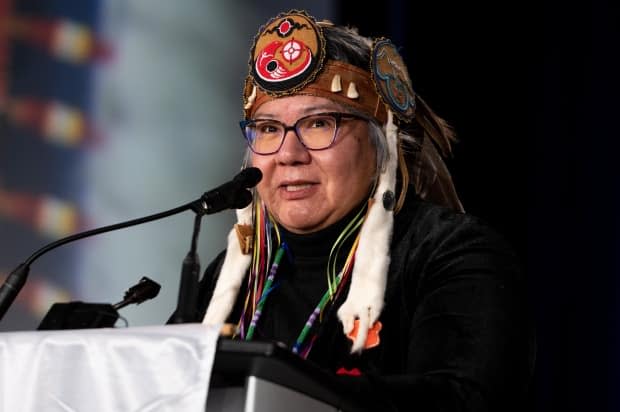Advocates decry 'unacceptable' inaction on MMIWG inquiry's calls for justice following 4-year anniversary

Advocates say they're disappointed to see such little progress has been made four years after the National Inquiry into Missing and Murdered Indigenous Women and Girls released its 231 calls for justice.
For Heidi Spence, director of Manitoba Keewatinowi Okimakanak's MMIWG liaison unit, the fact that so many of those calls haven't been started yet is "unacceptable."
"I was just shaking my head," Spence said. "There's still over 100 of them that haven't even been looked at."
CBC's "Mother. Sister. Daughter." project, which was released on Monday, tracked the progress of those calls and found that more than half of them haven't been started — and only two are complete.
Spence said she wants to see more urgency from governments and others addressed in the inquiry's final report to act on its calls.
"It's time for that to start being implemented and taken very seriously," she said.
"Families shouldn't have to beg for change."
Lynne Groulx, chief executive officer of the Native Women's Association of Canada, said her organization's own annual review of federal government progress on the calls to date has handed down a failing grade.
"We are disappointed to report that our annual scorecard shows that the federal government has gone another year without meaningful action to end the genocide," Groulx said in a news release issued June 1.
"The federal government's lack of action is baffling."
The Assembly of First Nations on Saturday released a statement lamenting how little has been done to implement the inquiry's calls to protect Indigenous women, girls and 2SLGBT people.

"Four years later and little has changed," National Chief RoseAnne Archibald said in the statement.
"This report offers concrete steps that all levels of government can take to offer that protection. No more stolen sisters."
Government reaction
Crown-Indigenous Relations Minister Marc Miller said the government's annual progress report on the federal pathway to address missing and murdered Indigenous women, girls and two-spirit people shows an "unwavering commitment" from more than 20 federal departments and agencies to address the inquiry's calls.
"Notwithstanding, it's important for me to acknowledge that this work is not about reports or numbers or checking boxes. It's about people," Miller said during an address in Ottawa on Monday where he did not take questions.
A Manitoba government spokesperson said Eileen Clarke, provincial minister of Indigenous Reconciliation and Northern Relations, was not available for an interview on Monday due to her schedule.
Instead, the spokesperson provided a statement that said the government is "committed to reconciliation" and acting on the inquiry's calls for justice.
The statement also pointed to several actions the province has taken in response to the inquiry's calls.

